Have you ever noticed your dog limping after a playful day at the park or found scratches on your hardwood floors?
It could be due to your dog's nails splitting. But don't worry, because today we're going to talk about how you can strengthen your dog's nails to avoid landing in such unfavorable situations!
Nail health is a crucial, yet often overlooked, part of your dog's overall well-being. Strong, healthy nails are important not only for your dog's movement but also for preventing injury during their daily activities.
This article will explore effective strategies and best practices to strengthen and protect your dog's nails, ensuring they can continue to explore and play without discomfort or damage.
What Causes Brittle Dog Nails?
If you see that your dog's nails are peeling or breaking too frequently, it might point towards a more serious issue or poor health.
Here are some typical reasons for brittle nails in dogs.
-
External factors
Dogs can break their nails by running on rough ground or playing hard with other dogs. This usually affects only one nail at a time and can make the nail prone to infections.
Also, dogs with dry and brittle nails are more likely to have their nails break and split because their nails are weak. This can keep causing more nail problems.
-
Infections
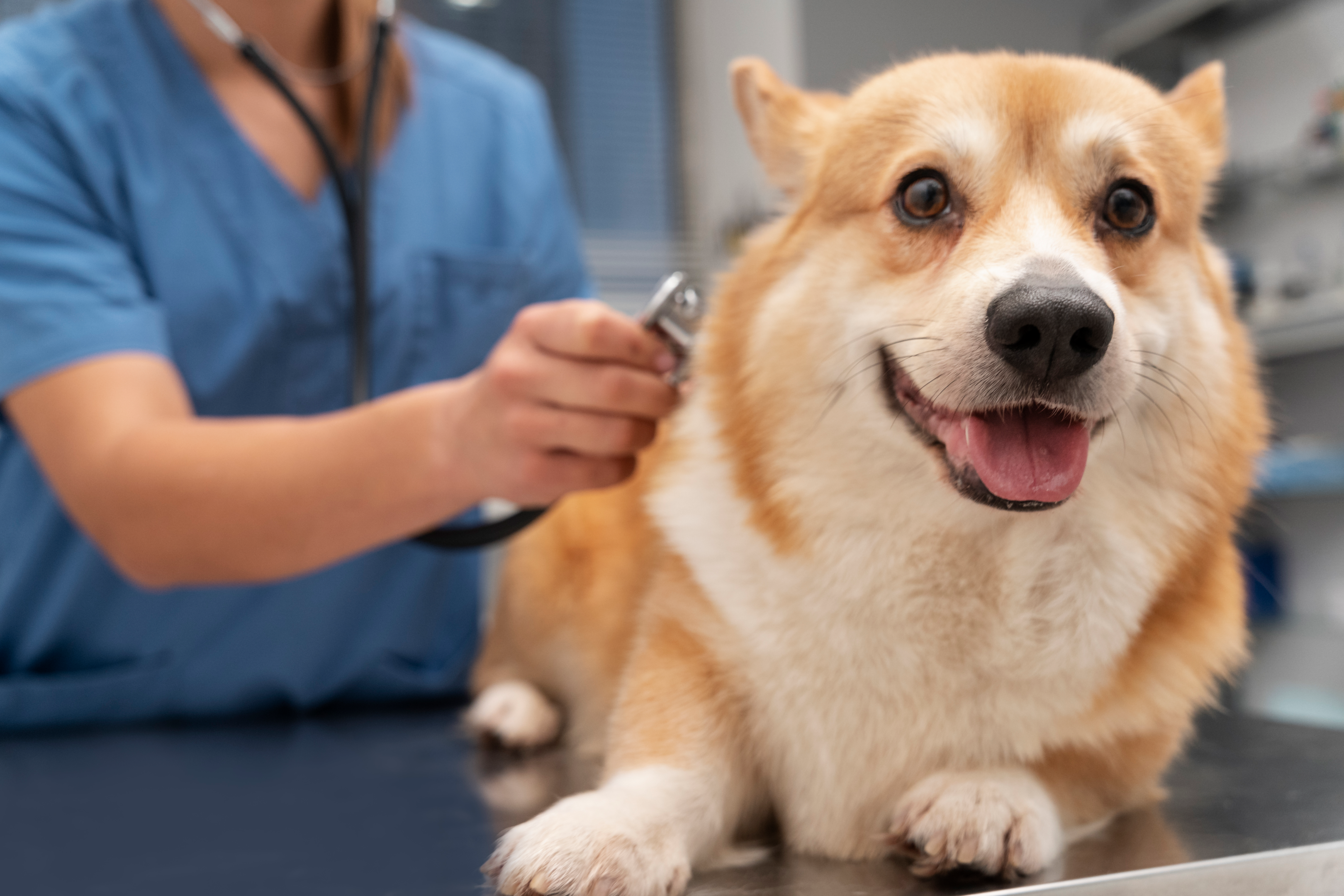
Nail infections in dogs can be caused by fungi or bacteria. If your dog's nails get infected, it can weaken several of their claws, making them brittle and flaky because their immune system is affected.
These infections often start from bacteria getting into small cuts or from food and environmental allergies. Fungal infections usually make the nails look crusted, while bacterial infections might cause inflammation.
-
Lupoid Onychodystrophy
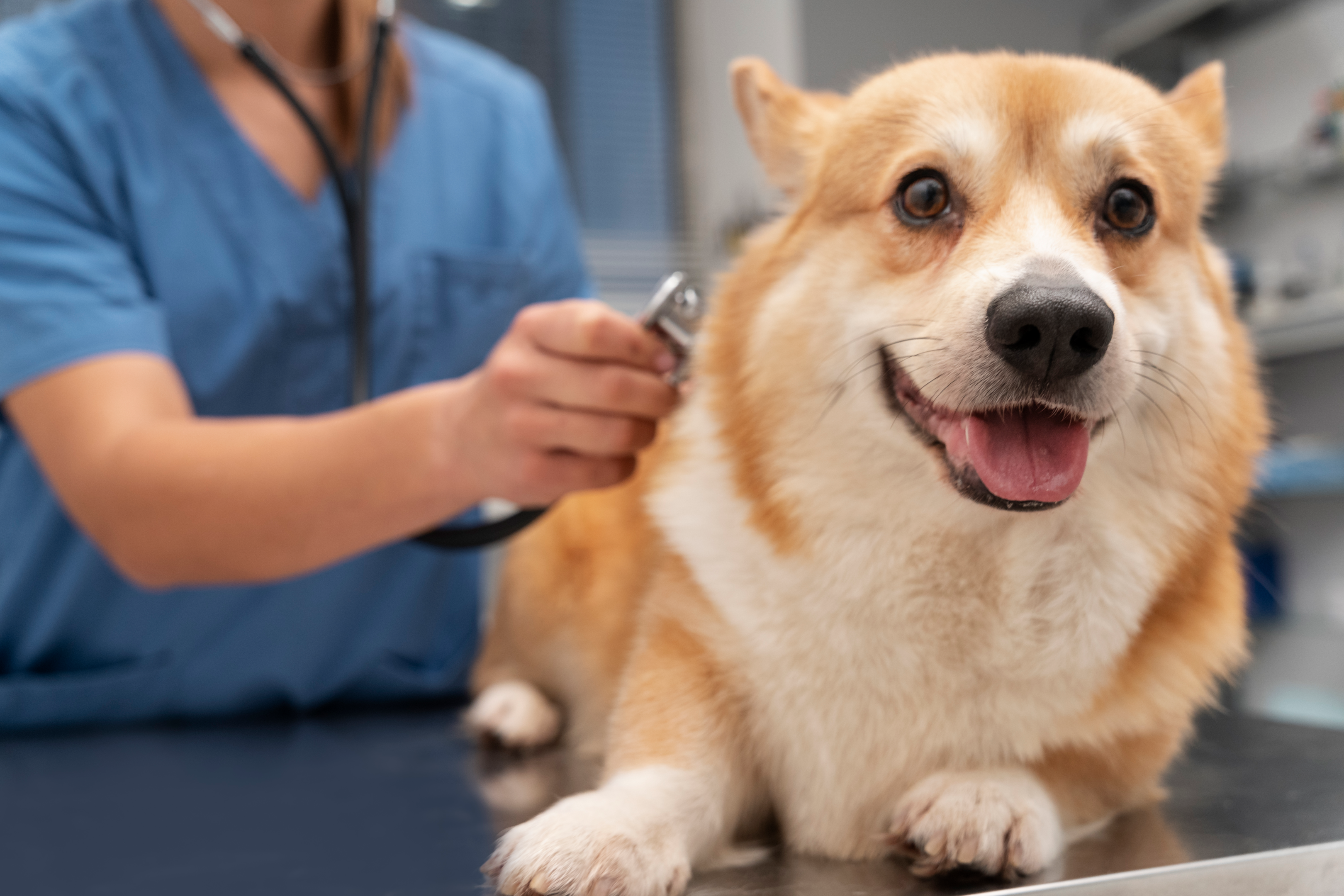
Lupoid Onychodystrophy is a type of lupus that targets the cells surrounding a dog's nails and is an immune-related condition that does not spread from one animal to another.
Certain breeds, like German Shepherds and Rottweilers, are more prone to this disease.
-
Lack of nutrition
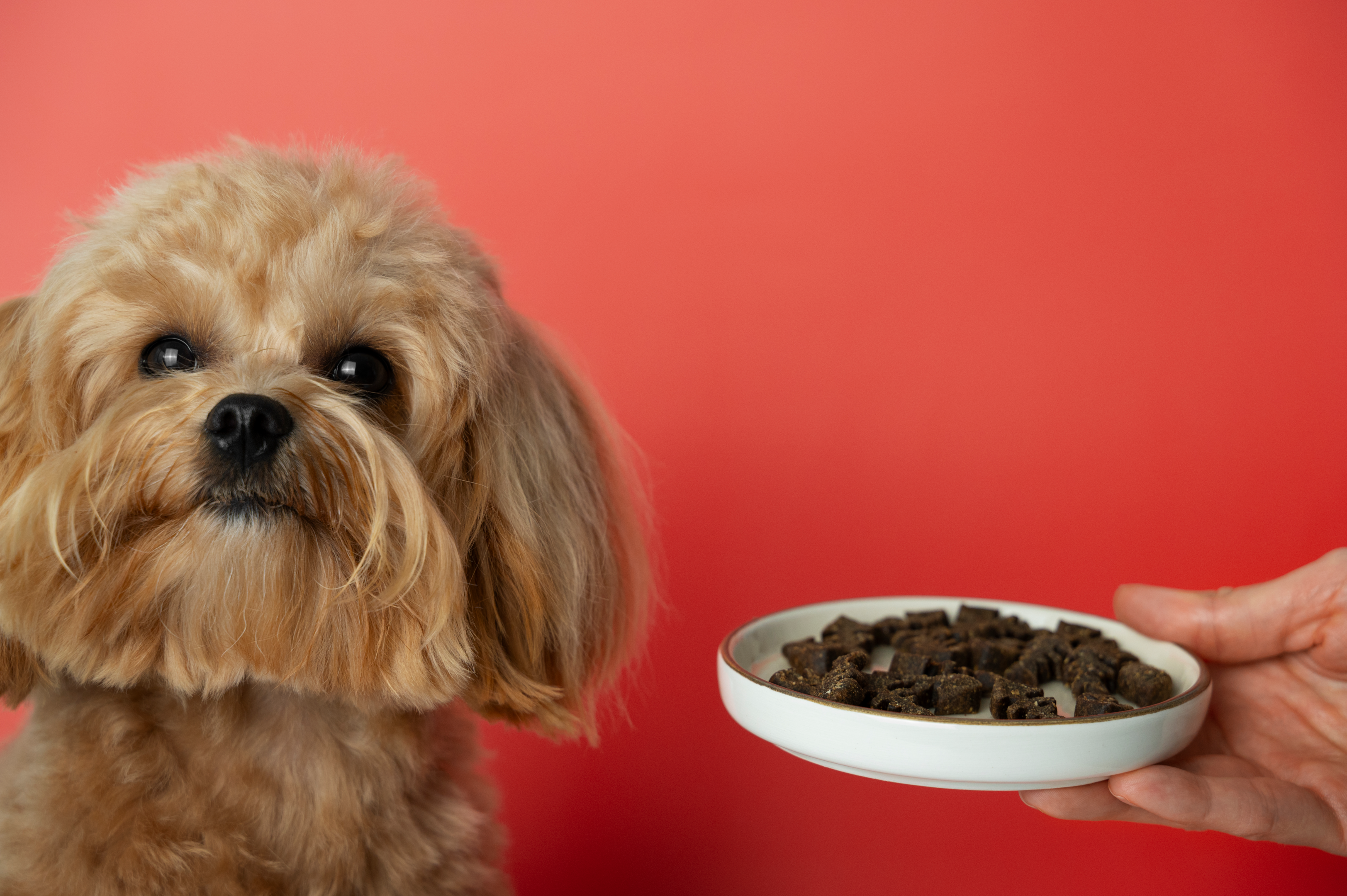
Dog nails are mainly made up of keratin, a protein that forms over 90% of the nail structure, derived largely from the nutrients in their food.
Therefore, if your dog has cracked and brittle nails, it might mean they are on a poor-quality diet that lacks balance and essential nutrients.
Additionally, even if dogs consume a diet rich in the right nutrients, they can still suffer from nutrient deficiencies if they aren't properly absorbing these nutrients during digestion. This often indicates there could be another underlying cause or health issue affecting your dog.
-
Overgrown nails

If your dog has long nails, they may get caught in things or break during their regular activities. Keeping their nails trimmed short will help them move freely, stay safe, and feel comfortable during walks or playtime with other dogs.
-
Nail tumor

Squamous cell carcinoma (SCC) is a cancerous tumor that can develop in a dog's nail beds. It results in red, irritated skin that weakens the nails, leading to nail brittleness. This tumor can also cause bleeding and sores. If caught early, surgical removal of the affected nails is typically recommended.
5 Ways to Strengthen Your Dogs' Nails
Let's look at the five ways you can treat your dog's nails and strengthen them to withstand their rough play dates.
-
Supplements
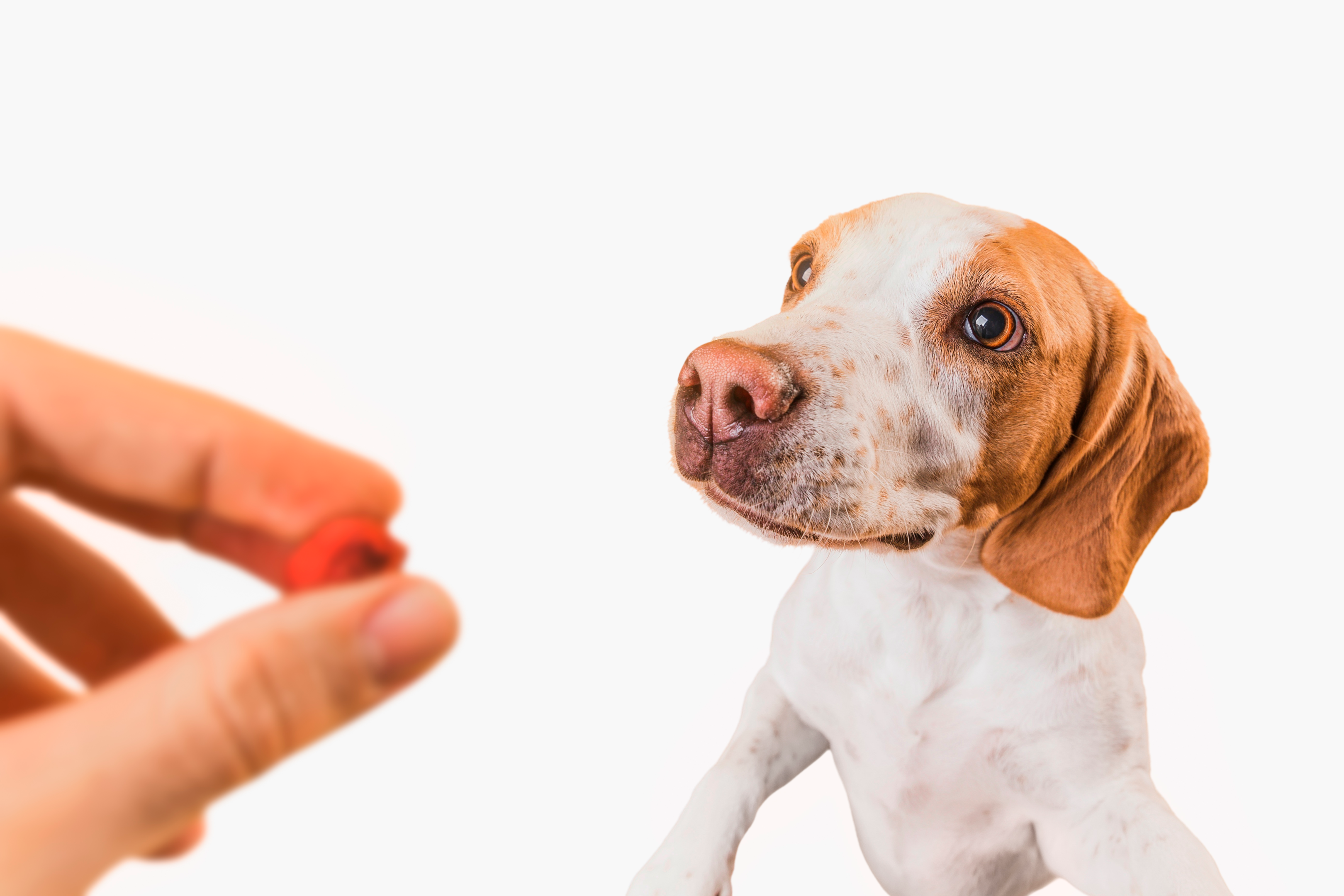
Omega-3, biotin, and collagen supplements offer various health benefits for dogs and humans, particularly in improving nail health. Omega-3 from fish oil lubricates and moisturizes nails, preventing dryness and promoting strength.
Biotin, which is a B-vitamin supplement, is essential for treating nail issues like Lupoid Onychodystrophy and also benefits your dog's hair.
Collagen supplements, important for overall body health, can help with brittle nails and are found in fresh animal proteins and bones, thus keeping your dog's nails strong.
-
Regular Nail trimming
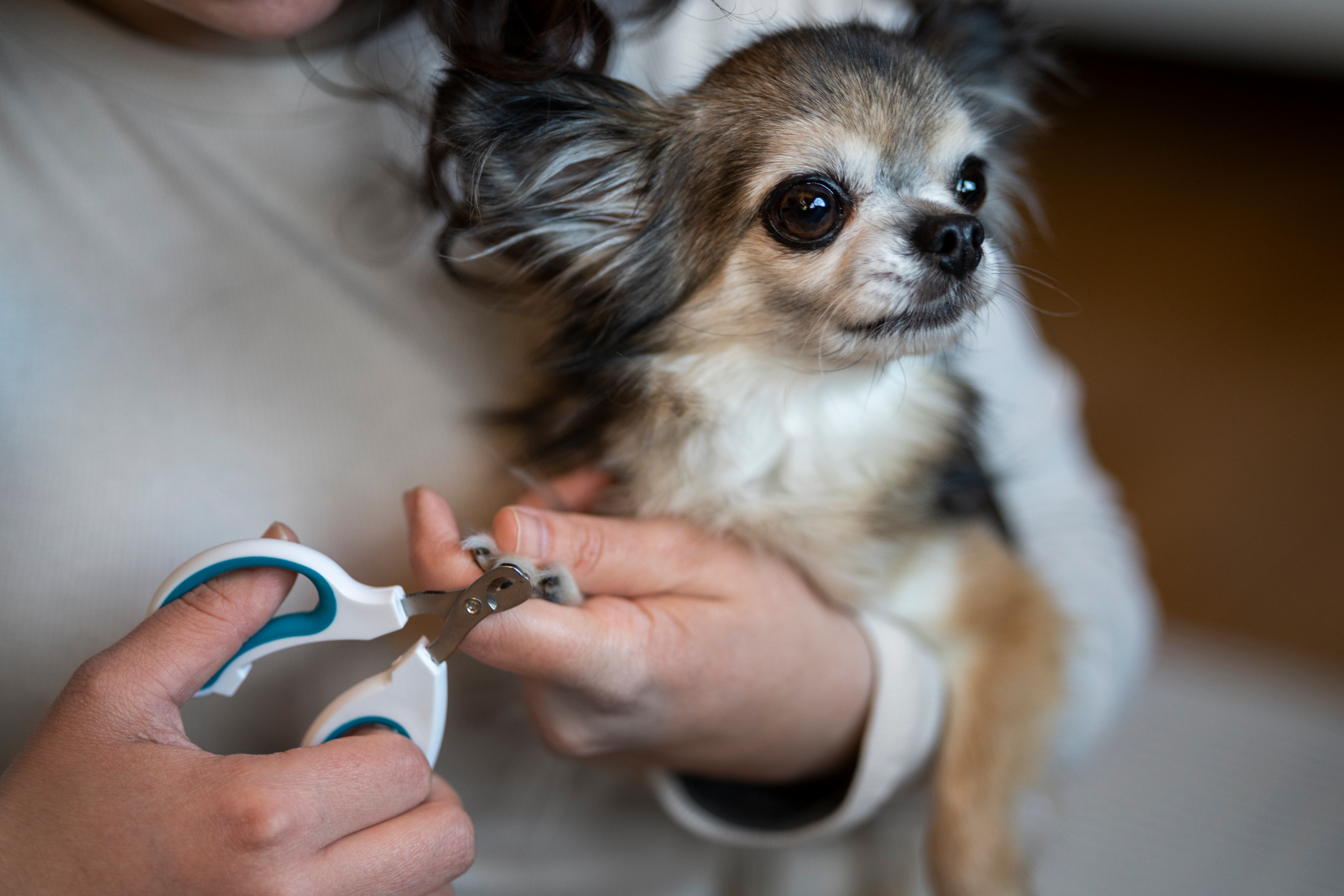
If your dog is outdoors a lot, their nails might naturally wear down on rough surfaces. However, not all dogs stay active enough for this. Some breeds have faster-growing nails and can't keep them short by themselves. It's best to trim their nails every three to four weeks.
Regular trimming prevents nails from getting too long, which can cause problems in the nail bed. If you're not confident in trimming your dog's nails, try using a dog nail grinder, which is safer than clippers.
-
Nutritious and balanced diet
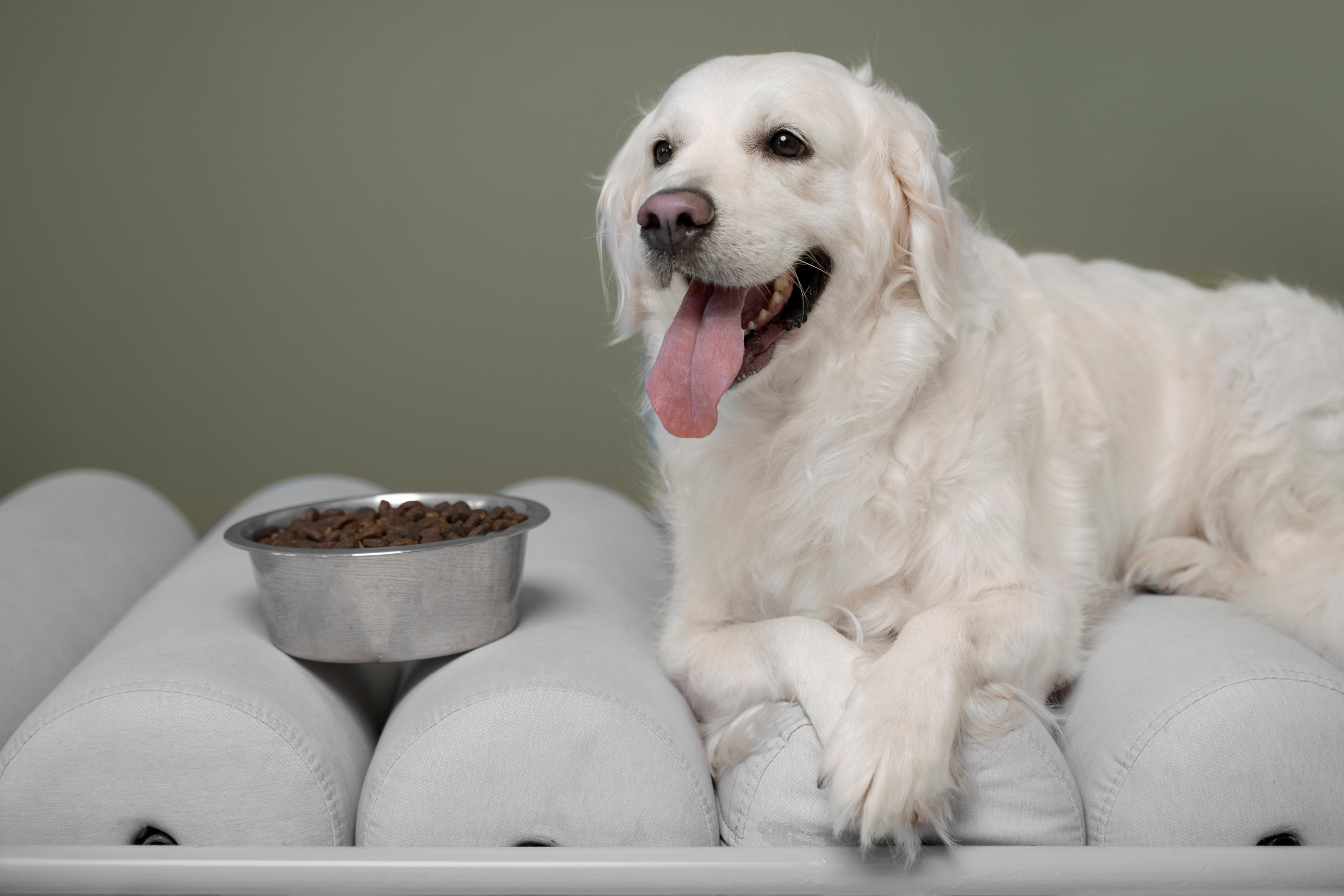
Providing your dog with nutritious and high-quality dog food is really important for their overall well-being, including their skin, fur, and nails. Opt for dog food that meets nutritional standards for a balanced diet.
If you're unsure about the best diet for your dog, consult your vet for guidance to stop your dog from ending up with broken nails.
-
Consult the vet
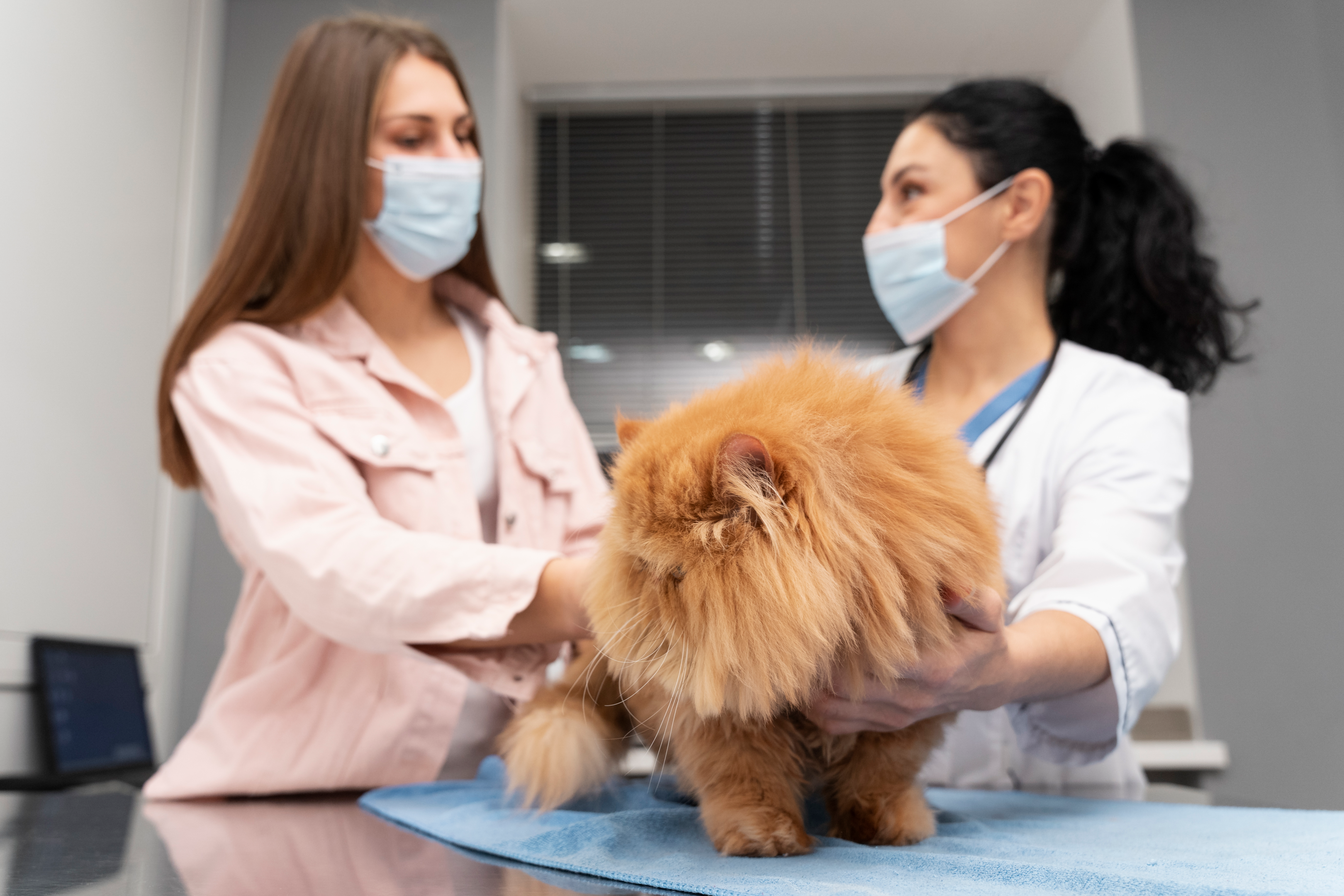
If you notice your dog's brittle nails, it's important to prioritize a visit to the vet. This step is crucial because if the problem is related to an infection or conditions like Lupoid Onychodystrophy, it may need medical treatment immediately.
-
Paw pad care
It's important to keep your dog's paws safe along with their nails. Their paws can get hurt easily from hot or cold hard surfaces, rough terrain, and things like thorns or glass.
To avoid problems, avoid going on long walks with your dog when it's not too hot or cold outside, and check their pads often.
TIPS: How to Avoid Brittle Dog Nails?
Looking after your pup's nails is really important. But you don't have to be an expert dog nail groomer to do it right. Simple things like checking their nails regularly, grinding them to keep them at a suitable length, and giving them good food will stop your dog from getting split nails and keep them strong and healthy.
Moreover, supplements and a balanced, nutritious diet can make your dog's nails less brittle.
Final Words
Keeping our canine friend's nails healthy is vital for their comfort and happiness. Remember, it's not just about aesthetics; strong nails mean fewer instances of pain or infections for your pup.
Just imagine the joy they'll feel when they can run, play, and dig without discomfort from brittle nails that split occasionally.
So, keep an eye on their nail health, trim regularly, consider supplements to strengthen their nails, and don't forget those precious paw pads!



0 comments